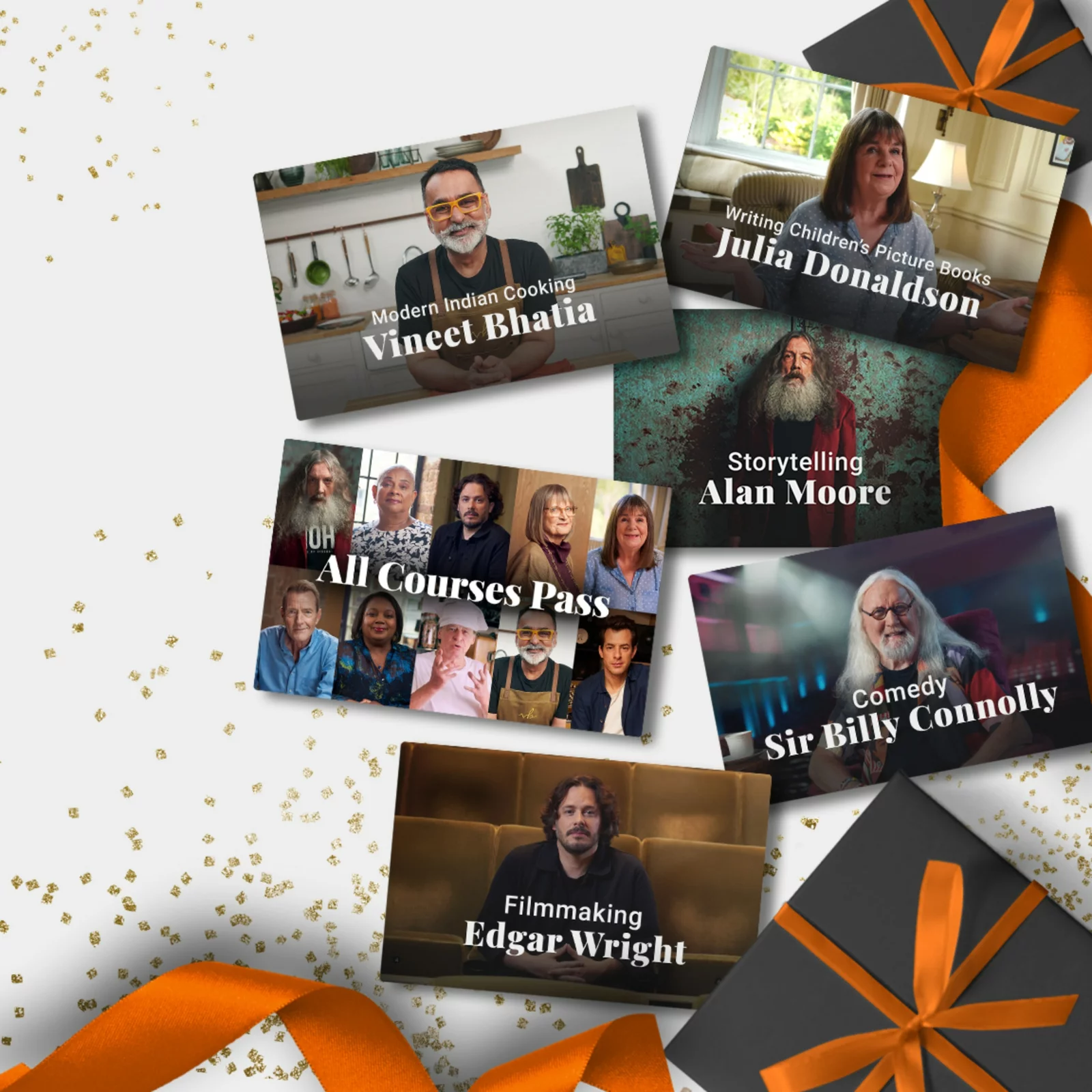Richard Greene
Overcome your fear of public speaking with Richard Greene

By BBC Maestro
When you’re delivering a speech or presentation, you want to leave the audience with a lasting impression. But how do you do that? When it comes to how to end a speech, there are various tactics you can use, depending on your topic and style – but here are some of our favourites.
Closing your speech effectively gives you one last chance to leave your audience with a memorable impression. The conclusion is the last thing your audience hears, meaning you can reinforce your message, whether you’re aiming to deliver a motivational speech, persuade your audience to make a purchase, are trying to teach them something, or simply want to make them laugh.
By recapping your key points in the conclusion, you can reinforce your message and ensure your audience leave having understood what you were trying to say. Depending on the theme and topic of your speech, it’s also an opportunity to evoke emotions, leaving your audience feel inspired, motivated, or moved by your message.
A powerful closing statement can turn a good speech into a great one. So, if you want to make an impact but you’re not sure how, here are some ways to end your speech with a bang.
When preparing your talk, think about the three main points you want to convey. If, right before you were due to take the stage, you were told that your speech was being cut down from 30 minutes to 15, what three things would you want to ensure you spoke to your audience about?
You can structure your speech around these three points, and you should also revisit them in the closing statement of your speech. The repetition will help to drive home your message, and your audience is more likely to remember these three important points.
Choosing to focus only on three things in your conclusion will also help to keep your conclusion succinct and memorable.
If you want your speech to linger with your audience long after you’ve finished speaking, consider asking a rhetoric question as you’re closing your speech.
When you pose a question, even if you’re not asking for answers, it encourages your audience to actively think about your speech topic. Depending on the subject, a rhetorical question can make your audience feel reflective, inspired, or curious – and when a speech has emotional impact, the audience is more likely to remember it.
Ending your speech with a call to action is a good idea if you’re hoping to persuade your audience to do something after listening to you, whether it’s signing a petition, donating money, or purchasing a product.
Being clear in your call to action explicitly tells your audience what you want them to do and turns them from passive listeners to active participants. Not everyone who’s listened to your speech will go on to take action, of course.
But if you don’t ask, you don’t get, so closing with a call to action may well increase your chances of success.
Whatever you do, don’t introduce new points or topics in your final words. Your conclusion is the place to round up what you’ve told the audience and reinforce your message – not introduce new ideas.
Adding in new information right at the end can feel disjointed and leave your listeners feeling confused. By introducing a new topic or idea at the end, it can dilute your message and take away from your main points.
If you do have more you want to share, or you get to the end of your talk and realise you’ve forgotten something important, consider whether you could send additional information via email or social media after the talk, or even if you could deliver a follow-up.

Sometimes there’s a temptation to rush through the conclusion to get your speech over and done with quickly, especially if you’re nervous about public speaking.
But speaking too quickly can be distracting for the audience, making it difficult for them to process your final words – which are, after all, the ones you want them to remember the most.
So, try to keep a comfortable pace throughout your speech, and stay engaged with the audience until the end. Maintain eye contact and be mindful of your non-verbal communication by smiling, using open body language, and varying your tone as you speak.
Whether you finish your speech with a call to action, a thought-provoking question, or with three powerful points, your conclusion should leave a lasting impression on your audience. If you can master the art of the closing statement, you’re sure to deliver speeches that resonate.
If you want to learn more about the art of public speaking, take a look at Richard Greene’s BBC Maestro course, Public Speaking and Communication. Richard has coached everyone from Princess Diana to the United States Senate, and in this course, he shares his expert insights with you, too.

Surprise a special someone with a year's access to BBC Maestro or gift them a single course.
Check your inbox - they’re on the way!
Please try again later
Unlock your passion, sign up today